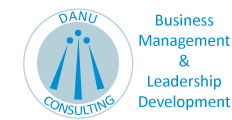Listening and communication – the key to solving problems
 As an Engineer I have been trained to embark upon the holy grail of discovering the real root cause to every problem and endeavouring to implement a long term and complete fix to the problem so it can never happen again. When posed with a problem, of course you have to deal with the acute symptom immediately – take the defective material off the manufacturing line or replace the broken part..that’s easy to do, a short term action that will reduce the urgency and impact of the immediate situation. When we do that we feel good that we have ‘saved the day’ – we have saved the day but not the next 10 years!
As an Engineer I have been trained to embark upon the holy grail of discovering the real root cause to every problem and endeavouring to implement a long term and complete fix to the problem so it can never happen again. When posed with a problem, of course you have to deal with the acute symptom immediately – take the defective material off the manufacturing line or replace the broken part..that’s easy to do, a short term action that will reduce the urgency and impact of the immediate situation. When we do that we feel good that we have ‘saved the day’ – we have saved the day but not the next 10 years!
In our lives and in business, we deal with acute symptoms immediately all the time, but do we have the rigour to take the time to ask ‘why did that happen?’ enough times to really understand how we can ensure it won’t happen again? If your business metrics are off track this month, you’ll ask the question ‘why’ maybe once or twice – a typical answer could be ‘costs are higher because we have higher inventory levels this month due to planning forecast inaccuracies, the improved forecasting tool won’t be ready for another 6 months’ – a plausible answer that has a couple of reasons why targets weren’t met, but this is a short answer in defence of a situation vs a deeper view of all the many potential causes of the situation.
Over many years I have observed the behaviours of people and organisations when dealing with all sorts of problems –technical, business and conflicts. I have observed that we only tend to ask the questions ‘Why did…, or What caused …?’ 2 or 3 times and we implement a solution to a problem that is still based at the symptom level. We as individuals and at the organisational level are very caught up in the here and now, we need immediate solutions – how often have you heard ‘We can’t afford to wait for …..’. Although I do agree short term solutions are important, they inevitably turn into the only solution that gets implemented, it gets patched together over time because it doesn’t fix the ongoing issue, and the result is a more costly workaround that never quite hits the mark.
Over the course of my career I have experienced many different types of problems and I have come to the conclusion that the fundamental starting point of most problems,and the reason we don’t actually solve them, is in our ability as individuals and at an organisational level, to listen and really hear, understand different points of view, differentiate between fact and perception, communicate and collaborate effectively, to ultimately arrive at an agreed plan of action that is then actually executed upon.
To sum it up, it’s not whether we are the most technically, scientifically or psychologically qualified person in the world, it’s really all about our most basic senses.
How you listen
- With your ears to actually hear what is being said
- With your brain to understand the content and context
- With your eyes to pick up body language
- With your mouth to ask clarifying questions
How you communicate
- With your body to convey interest
- With your heart to feel conviction, passion, empathy, understanding, trust, respect
- With your mouth to use words that seek peoples perspective, opinions and inputs, to convey openness, honesty trustworthiness, understanding
- With your brain to pull, body, heart and mouth together and define a collaboration with others to seek aligned and lasting solutions.
